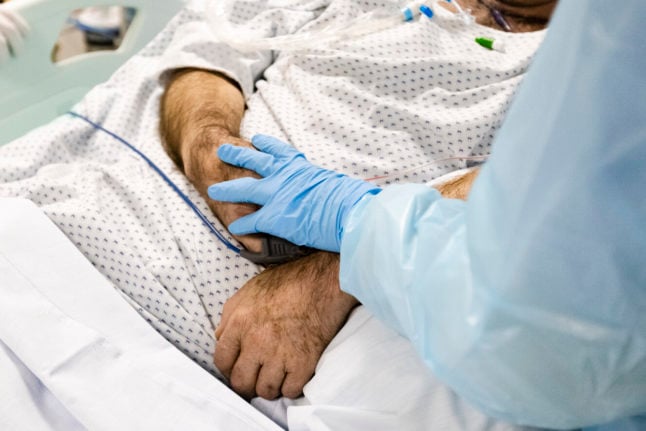“From the data we currently have and with the spread of the British mutation, we would argue strongly for returning immediately to a lockdown to avoid a strong third wave,” Christian Karagiannidis, director of Germany’s intensive care register, told broadcaster RBB.
Germany has seen a rise in cases since before it began a gradual easing of coronavirus measures in late February, allowing schools, hairdressers and other businesses to partially reopen.
A dramatic prognosis released by the Robert Koch Institute on Friday predicted that there would be more new cases by Easter than at the peak of the second wave in late December.
Karagiannidis said he very much hoped that the federal states would enforce the agreed emergency lockdown (Notbremse) when an incidence level of 100 new infections per 100,000 residents in seven days was reached.
“Otherwise we are once again going to see 5,000 or 6,000 patients in intensive care,” Karagiannidis said. “You can see very clearly that we will very quickly get back into rising ICU numbers, if we give the virus the opportunity to grow.”
The federal and state governments agreed on a return to the lockdown at their last summit in early March.
READ ALSO: Germany extends shutdown until March 28th – but loosens some measures
There are currently about 2,800 patients in intensive care in Germany with the Covid-19 disease.
“We won’t gain much by loosening restrictions for the next week or two because we will get to a high level very quickly and it will be twice as difficult at that high level to bring the numbers back down,” Karagiannidis said.
He added that it was important to vaccinate the over-50s and over-60s quickly so that fewer people would become seriously ill with Covid-19.
Last week, the head of Germany’s disease control agency Lothar Wieler warned that the third wave had already begun.
“We must avoid the same situation we were in before Christmas, with many infections, many serious cases and many deaths,” said Wieler, head of the Robert Koch Institute (RKI) for public health.
On Monday, official figures showed that the 7-day incidence rate rose again to 83 cases per 100,000 people, significantly above the 50 cases mark set by the government as a threshold for any easing in restrictions.
SEE ALSO: German coronavirus cases ‘will be higher at Easter than before Christmas’



 Please whitelist us to continue reading.
Please whitelist us to continue reading.
Member comments